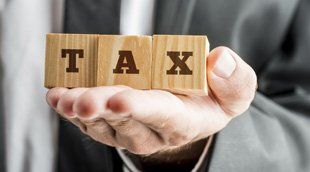Christmas Parties & Gifts 2019
Your Comprehensive Tax Guide to Year-end Staff Parties & Christmas Gifts
With the well earned holiday season around the corner, many employers will be planning
to reward staff with a celebratory party or event. However, employers need to be aware of the FBT
and income tax
implications of providing 'entertainment' to staff and clients.
Year-end (and other ) staff parties - FBT and 'entertainment'
Under the FBT Act, employers must choose how they calculate their FBT meal entertainment liability, and most use either the 'actual method' or the '50/50 method ', rather than the '12-week method'.
Using the actual method
Under the actual method, entertainment costs are normally split up between employees (and their family) and non-employees (e.g., clients). Such expenditure on employees is deductible and liable to FBT. Expenditure on non-employees is not liable to FBT and not tax deductible.
Using the 50/50 method
Rather than apportion meal entertainment expenditure on the basis of actual attendance by employees, etc., many employers choose to use the more simple 50/50 method. Under this method (irrespective of where the party is held or who attends) 50% of the total expenditure is subject to FBT and 50% is tax deductible.
However, the following traps must be considered:
- even if the function is held on the employer's premises – food and drink provided to employees is not exempt from FBT;
- the minor benefit exemption* cannot apply; and
- the general taxi travel exemption (for travel to or from the employer's premises) also cannot apply.
(*) Minor benefit exemption
The minor benefit exemption provides an exemption from FBT for most benefits of 'less than $300' that are provided to employees and their associates (e.g., family) on an infrequent and irregular basis. The ATO accepts that different benefits provided at, or about, the same time (such as a Christmas party and a gift) are not added together when applying this $300 threshold.
However, entertainment expenditure that is FBT exempt is also not deductible.
Note: 'Less than' $300 means no more than $299.99! A $300 gift to an employee will be caught for FBT, whereas a $299 gift may be exempt.
Example: Christmas party
An employer holds a Christmas party for its employees and their spouses – 40 attendees in all.
The cost of food and drink per person is $250 and no other benefits are provided.
If the actual method is used:
For all 40 employees and their spouses – no FBT is payable (i.e., by applying the minor benefit exemption), however, the party expenditure is not tax deductible.
If the 50/50 method is used:
The total expenditure is $10,000, so $5,000 (i.e., 50%) is liable to FBT and tax deductible.
Christmas gifts
With the holiday season approaching, many employers and businesses want to reward their staff and loyal clients/customers/suppliers. Again, it is important to understand how gifts to staff and clients, etc., are handled 'tax-wise'.
Gifts that are not considered to be 'entertainment'
These generally include a Christmas hamper, a bottle of whisky or wine, gift vouchers, a bottle of perfume, flowers or a pen set, etc.
Gifts that are considered to be 'entertainment'
These generally include, for example, tickets to attend the theatre, a live play, sporting event, movie or the like, a holiday airline ticket, or an admission ticket to an amusement centre.
As these tax considerations can be bewildering and overwhelming, please do not hesitate to contact us if you have any queries.



